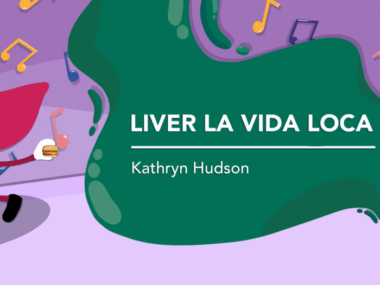A new tool may help predict your future with liver disease
Early intervention is key to better health outcomes
Written by |

One of the hardest parts of living with metabolic dysfunction-associated steatohepatitis (MASH) is carrying regrets about the past. The first time your doctor noticed your liver enzymes were elevated. The days of bone-deep fatigue after doing something you used to bounce back from, like gardening. The sudden swelling in your legs. The way favorite foods no longer sat right in your stomach. You can’t help but wonder: If you’d had a crystal ball, or even just a Magic 8 Ball, to glimpse what lay ahead, what might you have done differently?
Researchers from Sweden and Finland recently announced a new tool called the CORE model, which involves only simple blood tests and patient information. According to the investigators, the model allows doctors to predict liver disease risk with remarkable accuracy, sometimes 10 years before major illness develops. It could help forecast disease progression and outcomes long before symptoms spiral into crisis. The hope is to spare people from serious illness by catching it early, when treatment is more effective.
As someone who lives with and writes about advanced liver disease, I have many feelings about this news. The idea that a test could reveal what might lie ahead — and help patients and doctors prevent the worst — thrills me. I know many people at different stages of MASH who, like me, would do almost anything to stop the disease from progressing.
But there’s also a sense of mourning. When I first learned I had fatty liver disease, I was younger. I didn’t take it seriously, and I wish my doctor had pushed me harder to see the potential danger. Would I have listened? Would I have faced truths in my 20s that I’m only beginning to accept in my 50s? The honest answer: I don’t know.
What I do know is that fatty liver disease is striking more young people than ever, alongside other gastrointestinal illnesses, including cancers. The liver remains one of the most misunderstood organs in the body. Any chance to deepen our knowledge about how to protect it fills me with hope. In fact, hope is the diet I live on when it comes to my own liver.
What we can do today
So what can you do now? Start with your doctor. If you notice new symptoms, share them. Blood work, ultrasounds, MRIs, and other imaging can help reveal what’s going on. One day, the CORE model may become a routine road map for understanding and predicting liver health — but until then, the basics still matter.
If your doctor does find changes, take notes. Ask questions. Bring a family member or a friend if it helps, especially someone who can back you up by asking questions. Always schedule a follow-up when you’re experiencing new symptoms; your doctor will want to monitor progress and catch shifts early.
Taking your health seriously is getting easier as science advances. And while none of us wants to hear bad news, the sooner we do, the sooner we get the chance to turn things around. That makes any test valuable — not just for your liver, but for all the years of life you still have ahead.
Note: Liver Disease News is strictly a news and information website about the disease. It does not provide medical advice, diagnosis, or treatment. This content is not intended to be a substitute for professional medical advice, diagnosis, or treatment. Always seek the advice of your physician or other qualified health provider with any questions you may have regarding a medical condition. Never disregard professional medical advice or delay in seeking it because of something you have read on this website. The opinions expressed in this column are not those of Liver Disease News or its parent company, Bionews, and are intended to spark discussion about issues pertaining to liver disease.



LLinos Willis
Take notes , take a friend or family member you say the consultant will always want to keep in the loop with new symptoms….
Not in my story they don’t , new information shared about my condition changing seems to fall on deaf ears.
So I then go and see a Gp and one or two try and be helpful but then thers others and as soon as they see autoimmune liver disease it’s almost they stop trying to get to the source of the problem and investigate further.
I feel it’s a curse where I live I’m under gasto left to it and mabye they will intervene when I become really unwell .
So I’m left to fend for myself apart from the odd blood test and an email saying your bloods are really good.
And I’m really glad , how about all the others things I’ve asked about , any new advice !!?
Thank the lord for Google , and forums to see what other patients have been informed by their liver specialist consultant so I get to learn this way.